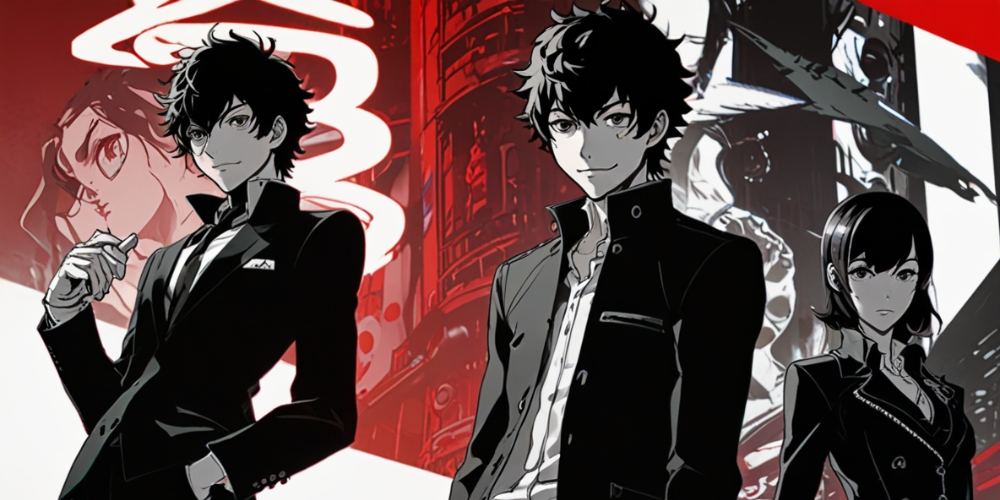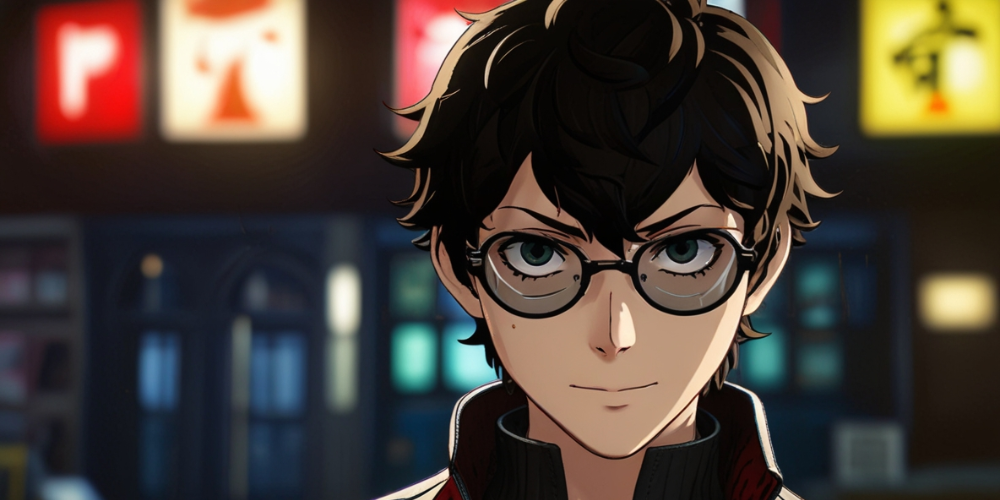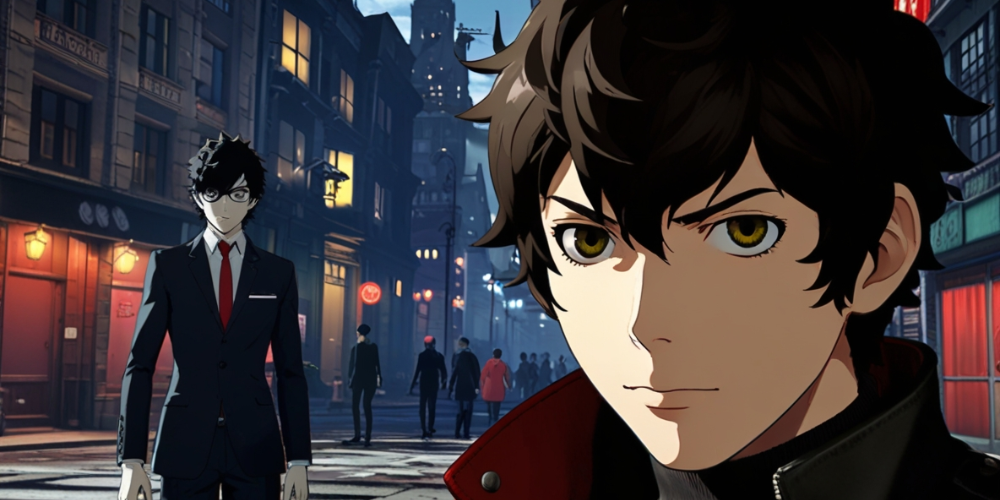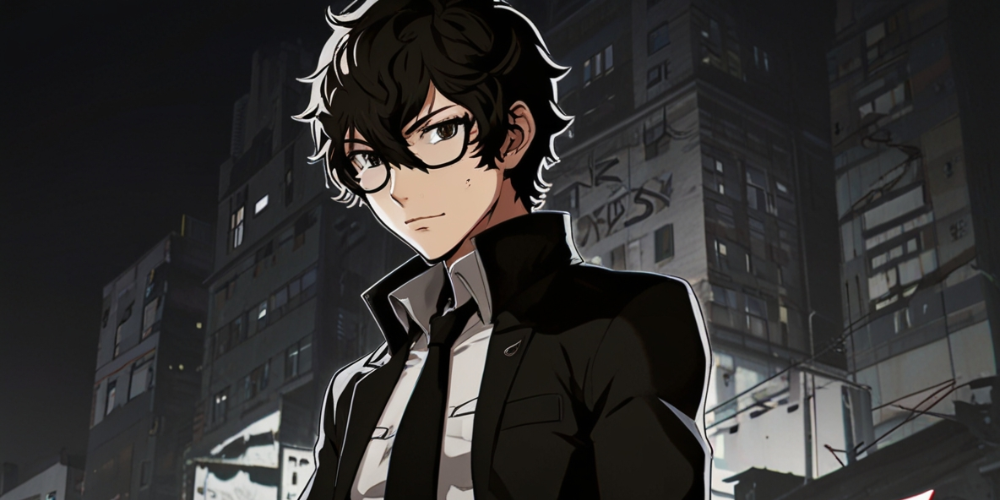Persona 5 - Examining Themes of Rebellion and Social Commentary
Aug-03-2024

As I delved into the captivating universe of Persona 5, I was instantly drawn into its vibrant art style and its intricate storytelling. Through the eyes of my persona, Ren Amamiya, I navigated the dual realities of everyday life and the supernatural world. This game isn't just about fantastical battles and friendships; it’s an insightful critique of society that resonates deeply with me. Each moment in the game forces me to confront issues that feel very much alive in the world around us.
The Call to Rebellion
One of the first themes that struck a chord within me was the notion of rebellion. The characters, each adorned with their unique struggles, challenge the oppressive forces that dictate their lives. They rebel against corrupt adults, societal expectations, and even their own insecurities. When I first gathered outside Leblanc with my fellow Phantom Thieves, it felt thrilling to be part of a collective that yearns for change. This sense of camaraderie made me reflect on my own experiences when standing against injustice.
Societal Constraints and the Power of Persona
As I encountered various characters, I noticed how the constraints of society shape their actions. My journey through Yongen-Jaya made me aware of the pressures imposed by family, school, and societal norms. Each character’s yearning for self-expression echoed my own attempts to break free from expectations. The ability to summon a Persona serves as a metaphor for reclaiming one's identity; it's a personal evolution I sought while exploring my own relationships and aspirations.

The Nature of Corruption
The portrayal of corruption in the game is striking and multifaceted. As I infiltrated the Metaverse, I witnessed the manifestation of human desires, revealing how far people are willing to go in pursuit of power. Each palace I explored symbolized the darker aspects of human nature. I couldn’t help but consider the real-world implications of such corruption, especially in political and educational systems. Persona 5 adeptly highlights the need for accountability—an issue prevalent in our society today.
Friendship and Support
The bonds I forged with my fellow Phantom Thieves were pivotal to my journey. The relationships I developed reflected the importance of friendship as a source of strength. In times of doubt, confiding in others reminded me of the value of support systems. This aspect of the game illustrated that rebellion isn’t a solitary endeavor, but a collaborative effort that can empower change. I felt that sense of unity resonating outside the game, reinforcing the importance of communal activism.
The Weight of Conformity
Throughout my exploration of Shujin Academy, I felt the unrelenting pressure of conformity firsthand. The strict social hierarchy at school mirrored real-life institutions where individuals often feel compelled to maintain a façade. The struggles of my classmates, particularly characters like Yoshizawa and Takamaki, depicted just how damaging societal expectations can be. Their stories made me ponder my own experiences with conformity and the silent battles many of us face.
Rebellion Against Fate
Engaging with the theme of fate, I began to question the idea of determinism. The concept that our paths are written in stone is challenged throughout the game. I experienced the thrill of forging my destiny alongside my team. Through every decision, every relationship, I felt empowered to sculpt my own future. This theme captivated me and prompted introspection about the choices I make in my own life, leading me to confront whether I am truly in control of my trajectory.

Empathy through Understanding
The game’s portrayal of mental health issues was nothing short of revolutionary. I empathized with characters like Futaba and Su_present; their struggles with anxiety and depression became reflective of the silent battles many encounter. Persona 5 fostered an environment conducive to open discussions about mental health, highlighting the significance of empathy and awareness. These portrayals urged me to engage more openly with my community about mental health, breaking the stigma that often surrounds it.
Revolutionizing the Education System
An underlying current in my journey was the critique of the education system. It became evident to me that the pressures placed on students to succeed often lead to despair. Shujin Academy, with its relentless focus on grades and performance, became a microcosm of broader educational issues. The system, designed to uplift, often stifles individuality and creativity. This theme resonated deeply as I reflected on my own schooling experiences, leading to considerations of how we can advocate for change in educational practices.
Falling into Despair
Throughout my adventures, I occasionally found myself grappling with despair. The weight of betrayal, sadness, and loss illustrated how critical it is to confront darkness head-on. The characters’ journeys through their unique trials showed me that facing adversity is necessary for growth. I recognized that even in times of despair, forging connections with others can illuminate the path forward, a reminder of resilience I carried outside the game.

The Value of Identity and Choice
Persona 5 compelled me to consider the complex idea of identity. Each character I encountered had to confront their true selves, peeling away societal layers to discover who they are at their core. This notion hit home when I reflected on my own struggles with self-identity. The game encouraged me to embrace self-exploration and authenticity, reminding me that the journey to understanding oneself is as important as the outcome.
Redemption and Forgiveness
As I journeyed through the tangled web of human emotion, the theme of redemption emerged as a central narrative. Characters like Kamoshida exemplified the possibility of change, illustrating that even those who have committed grievous acts possess the potential for redemption. This theme resonated deeply with me, challenging my views on forgiveness and the capacity for growth within us all. It drove home the idea that we should never be quick to dismiss anyone’s ability to change.
The Role of Authority
Authority figures in Persona 5 often represent power's corruptibility. Through encounters with characters such as Kamoshida and Shido, I was forced to reassess my perceptions of authority. Their manipulations and abuses of power were reflective of real-world injustices, prompting me to consider how we can challenge these structures responsibly. This ongoing confrontation with authority ignited a desire within me to advocate for transparency and integrity in positions of power.
Empowerment through Liberation
Finally, the overarching theme of empowerment through liberation reverberated throughout my experience. The act of reclaiming one's voice and taking a stand against oppression drove the narrative. As I led my Phantom Thieves into the fray, I felt an electrifying sense of empowerment, a reminder of the importance of fighting for what is right. This theme illuminated my desire for change in the world, inspiring me to be an active participant in the collective struggle for justice.
The Path Ahead
As I reflect on my journey through Persona 5, I understand now that it was much more than a simple game—it served as a mirror reflecting my values, challenges, and dreams. The rich themes of rebellion, identity, and social commentary encourage examination of not just the world within the game but the world beyond it. My experience prompted profound questions about society and my place within it and instilled a sense of purpose and determination that continues to guide my path forward.







